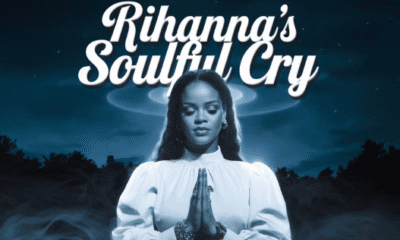NaijaGists.com Latest News Updates
Atiku Slams Tinubu Over Billboard Removal Amidst Ongoing Presidential Election Petition
Atiku Abubakar Criticizes President Tinubu over Billboard Removal Amidst Ongoing Presidential Election Petition
In the constantly evolving political sphere of Nigeria, recent events have further highlighted the contentious atmosphere between political adversaries. Atiku Abubakar, the presidential candidate representing the Peoples Democratic Party in the 2023 elections, has expressed vehement disapproval of President Bola Tinubu’s recent actions.
Through a poignant statement conveyed by his Special Assistant on Public Communications, Mr. Phrank Shaibu, Abubakar berated the removal of billboards from significant locations within the Federal Capital Territory. These billboards, symbolizing a watchful eye on the judiciary, have become emblematic of the anticipation and hope many Nigerians hold while they await the resolution of the Presidential Election Petition tribunal.
In the heart of the matter are the billboards, inscribed with the phrase ‘All eyes on the judiciary’. Abubakar has viewed their removal as a glaring testament to what he describes as “President Bola Tinubu’s authoritarian trajectory and his flagrant disregard for freedom of expression.”
Mr. Shaibu’s statement from Tuesday, broadcasted from Abuja, further articulated their discontentment. It critically addressed the Advertising Regulatory Council of Nigeria’s (ARCON) directive to remove these billboards nationwide, deeming the act wholly unwarranted.
Furthermore, Shaibu elaborated on ARCON’s abrupt dissolution of the Advertising Standard Panel. This regulatory body, entrenched in national statutes, ensures that advertising aligns with federal laws and adheres to the ethical standards of the advertising industry.
From the standpoint of the Peoples Democratic Party, this entire episode exemplifies the underlying issues with the current electoral system. Shaibu contends that had the tribunal’s verdict been delivered prior to the inauguration, these potential manipulations could have been prevented. He goes on to question the perceived threat that the message ‘All Eyes on the Judiciary’ seemingly poses to the established order.
“The essence of social justice lies in serving the people,” Mr. Shaibu emphasized, underscoring that such billboards are merely a reflection of global democratic practices. “It is perplexing that President Tinubu and the APC feel agitated by this particular message. Even if these billboards vanish, the vigilant eyes of the judiciary and the people remain unwavering,” he asserted.
Shaibu, in his statement, shed light on ARCON’s seeming transformation into an entity resembling the Lagos State Signage and Advertising Agency (LASAA). He opined that LASAA’s reputation for curtailing advertisements not in line with the Lagos State government’s preferences is becoming a concerning pattern at the national level.
Tinubu’s increasingly authoritative stance has drawn sharp criticism from Abubakar’s camp. “This act of pulling down educational billboards is evidence of how far-reaching Tinubu’s dictatorial tendencies have grown,” Shaibu remarked. He questioned how such a basic message could incite such a swift and drastic response, arguing that it only reveals a hidden agenda.
Drawing attention to the prevalence of similar practices in Lagos, Shaibu recounted how opposition parties have consistently been denied advertising space. He cited the example of Tinubu’s son’s exclusive access to prime billboard locations, a fact that has generated considerable public discourse. Shaibu didn’t hesitate to bring up the controversial #ENDSARS protests incident, where billboards were reportedly turned off, and questioned the legitimacy of the provided explanations.
The unfolding narrative presents President Tinubu in a paradoxical light. Shaibu recalls Tinubu’s claims of being an integral part of the June 12 democratic movement, contrasting it with his perceived authoritarian reign post-election.
In a concluding note, Mr. Shaibu made a poignant observation, highlighting the dichotomy of President Tinubu’s democratic advocacy in foreign lands, while seemingly sidelining basic democratic principles domestically. The essence of freedom, speech, and expression seems to be at stake, he argues, cautioning Nigerians to be vigilant as their democracy appears to be under siege.
While fervently hoping for the judiciary’s intervention, Shaibu did not mince words about the current administration’s economic trajectory. Pointing to rising inflation and a depreciating naira value, he stated, “The audacity to regulate and control narratives while simultaneously ignoring genuine concerns will not stifle the voice of the people.”
In this escalating political drama, the message is clear: The vigilant eyes of the Nigerian people, and their unwavering hope in the judiciary, remain resolute. The removal of a few billboards might not dampen the spirit of a nation yearning for justice and fairness.

































